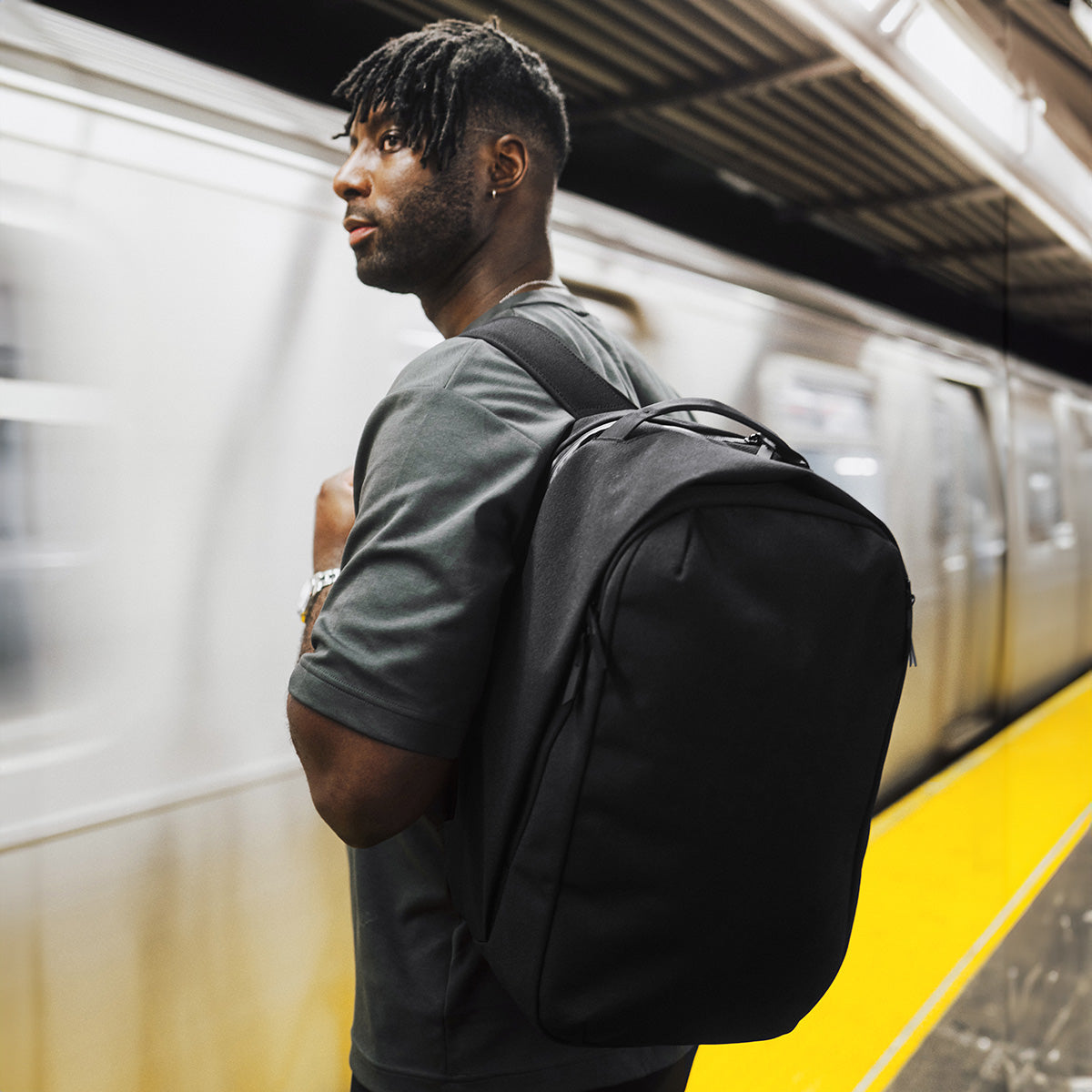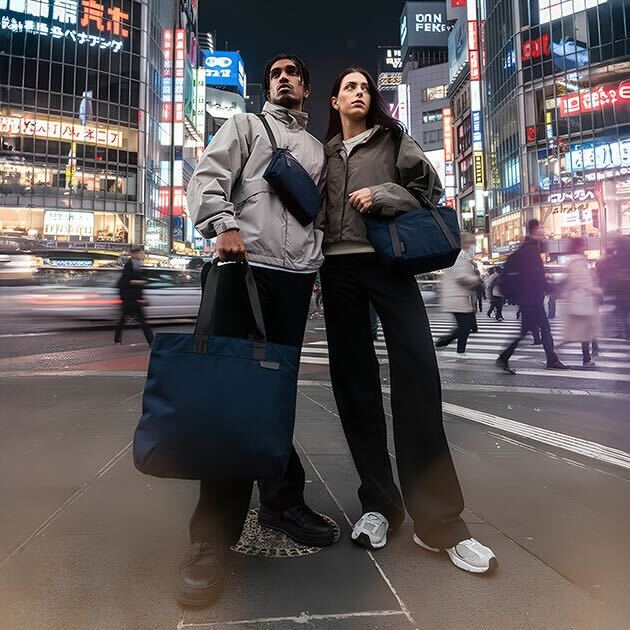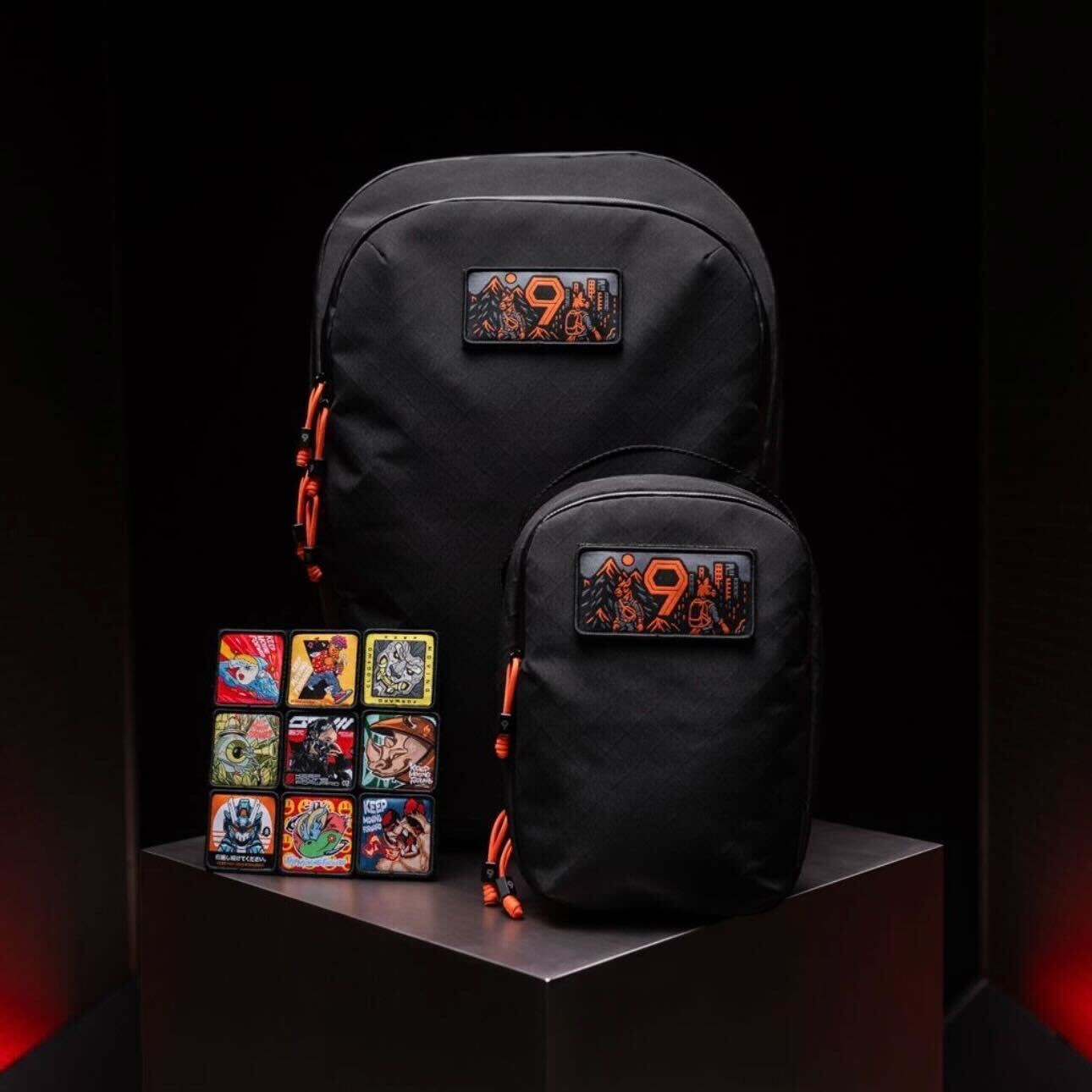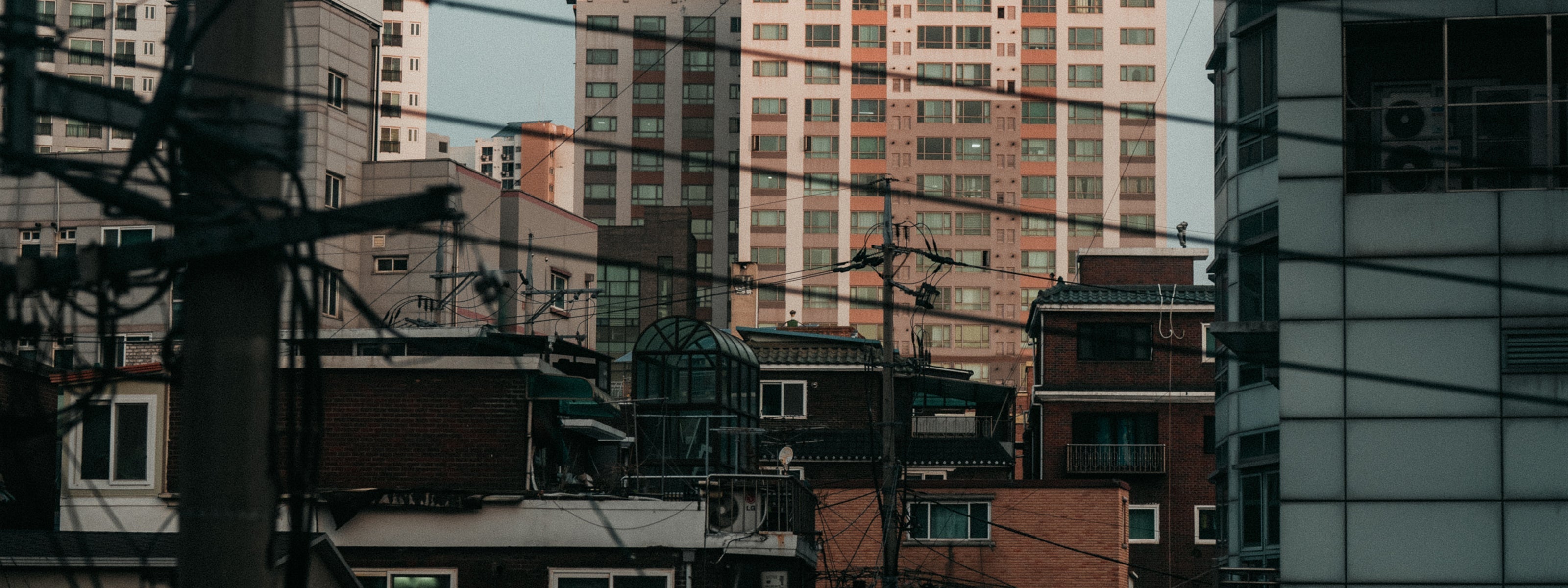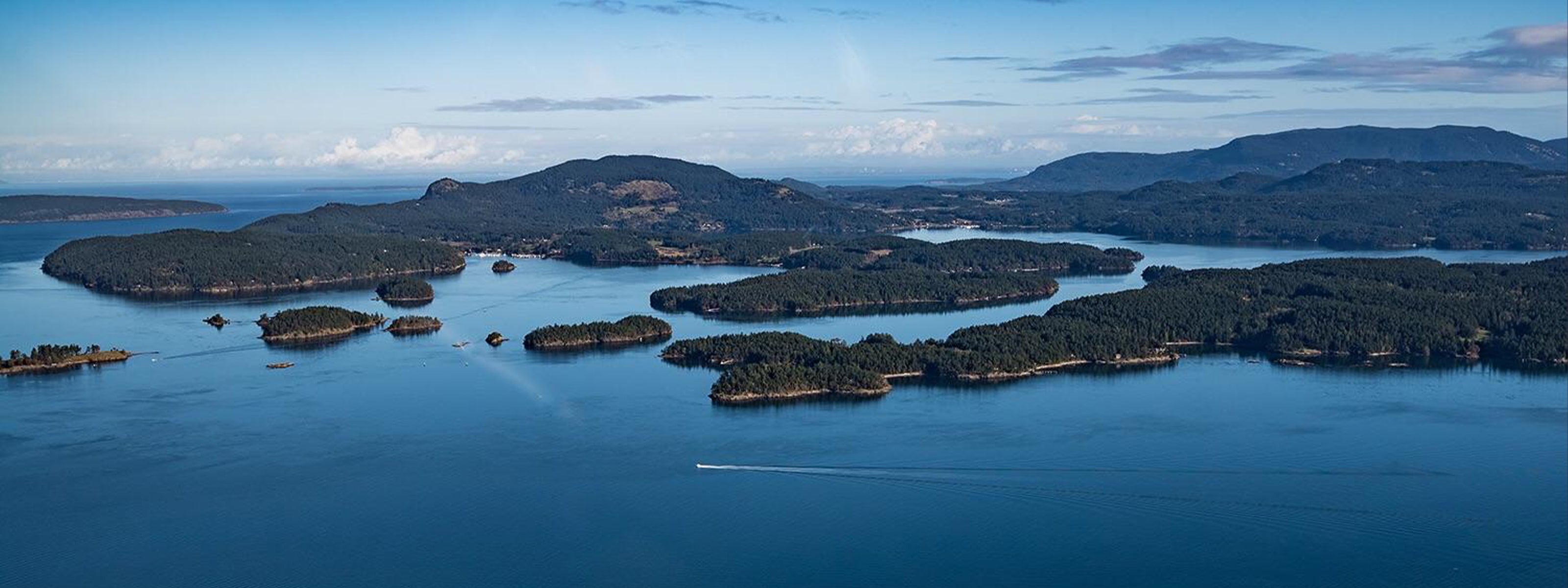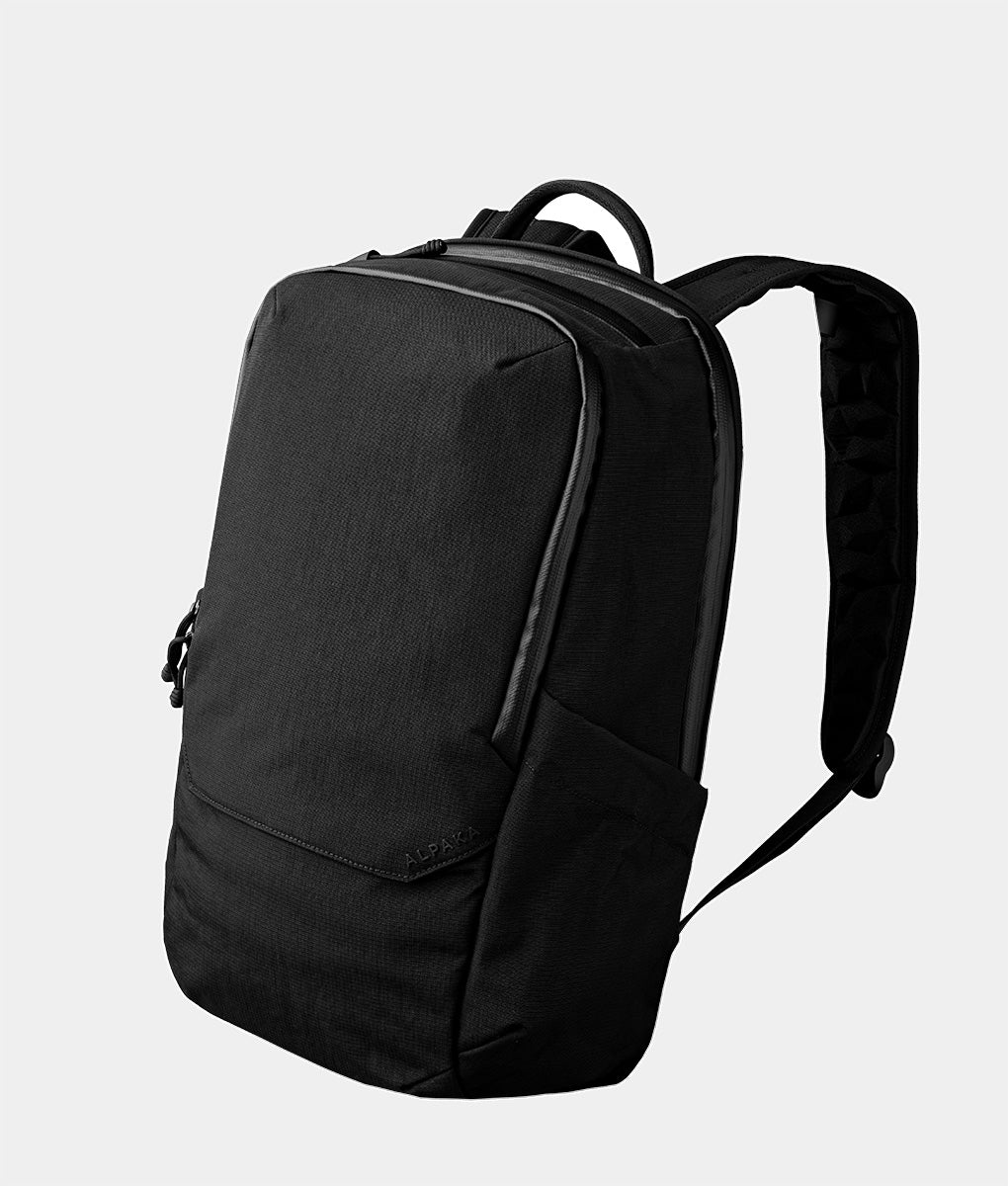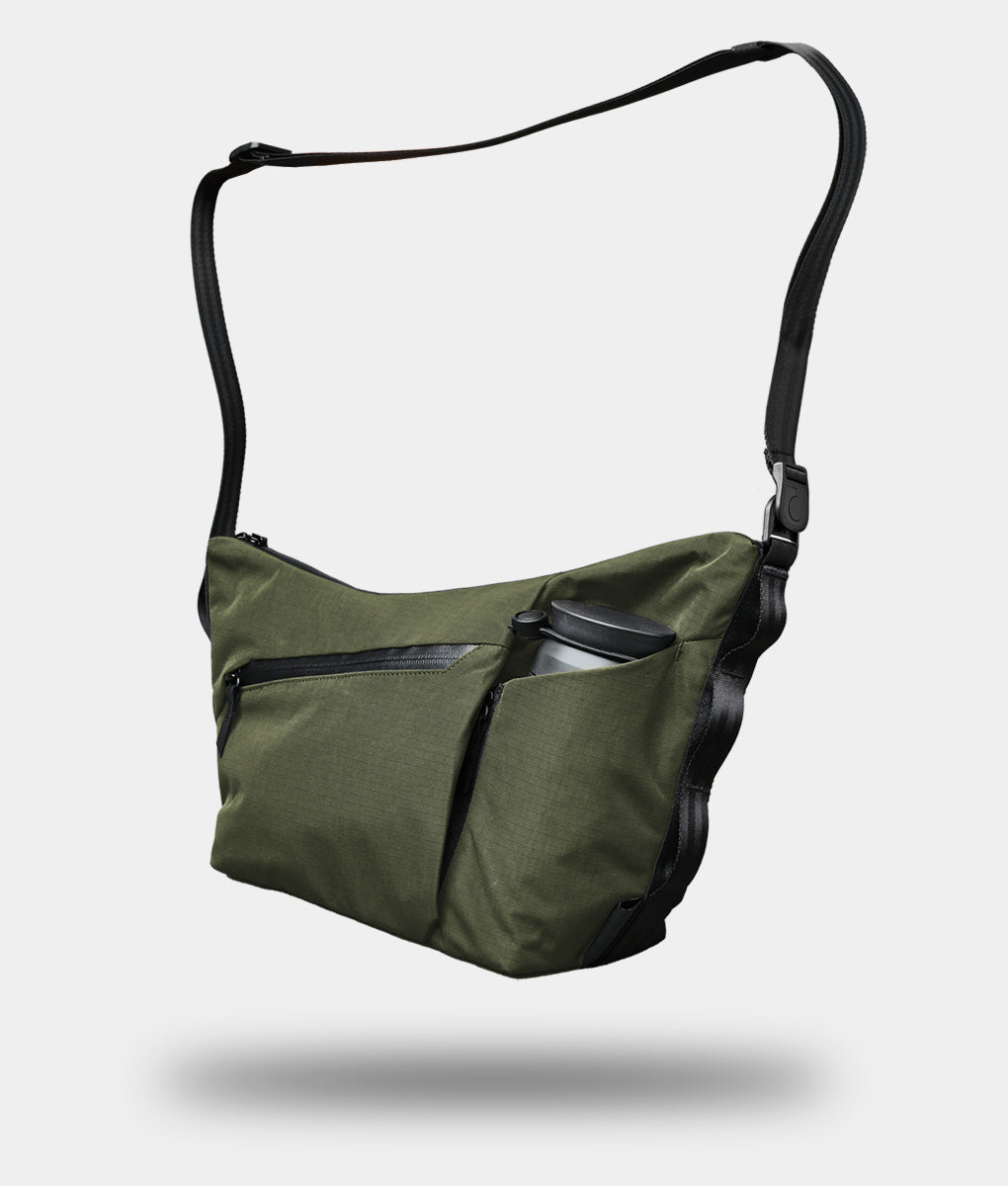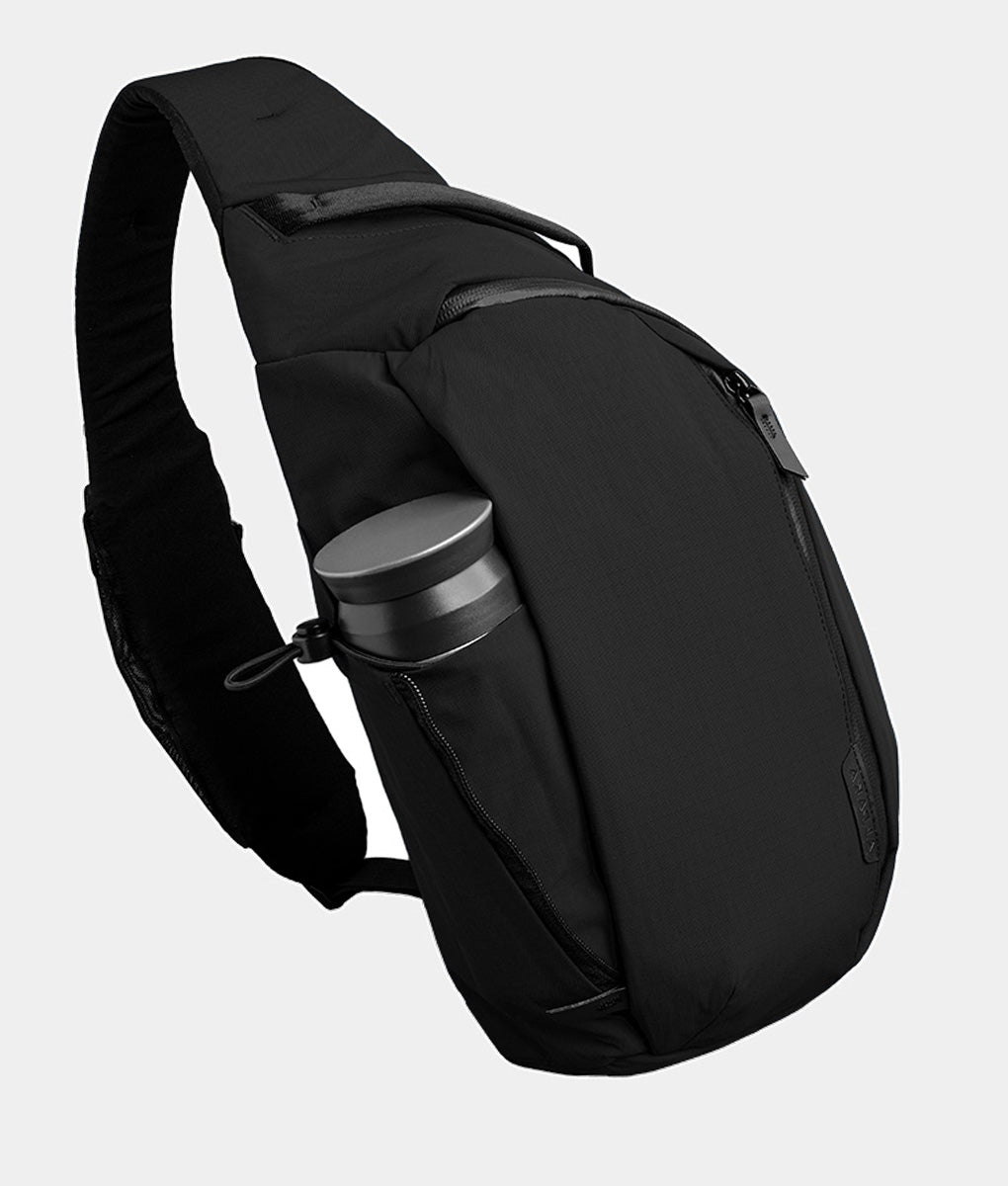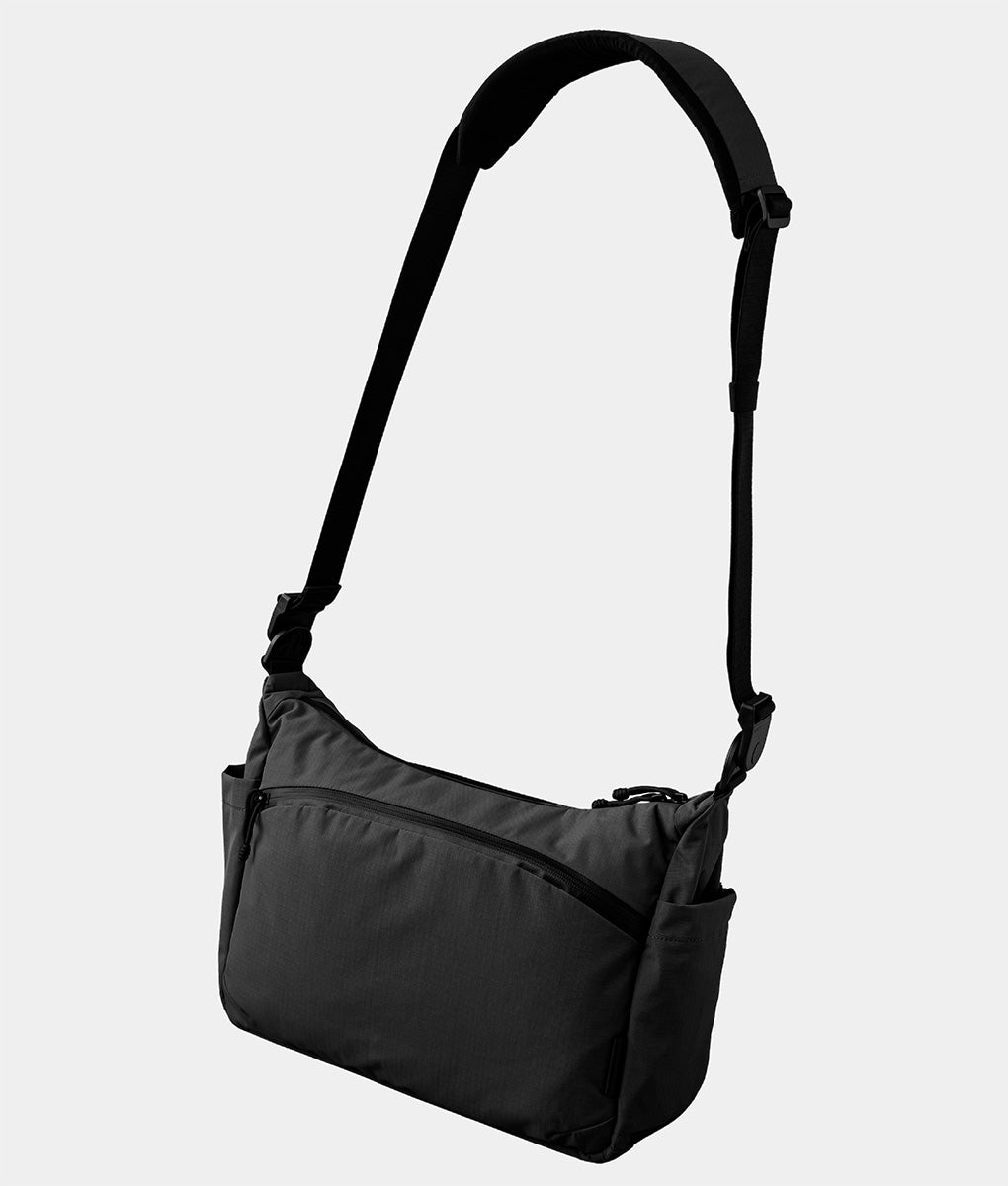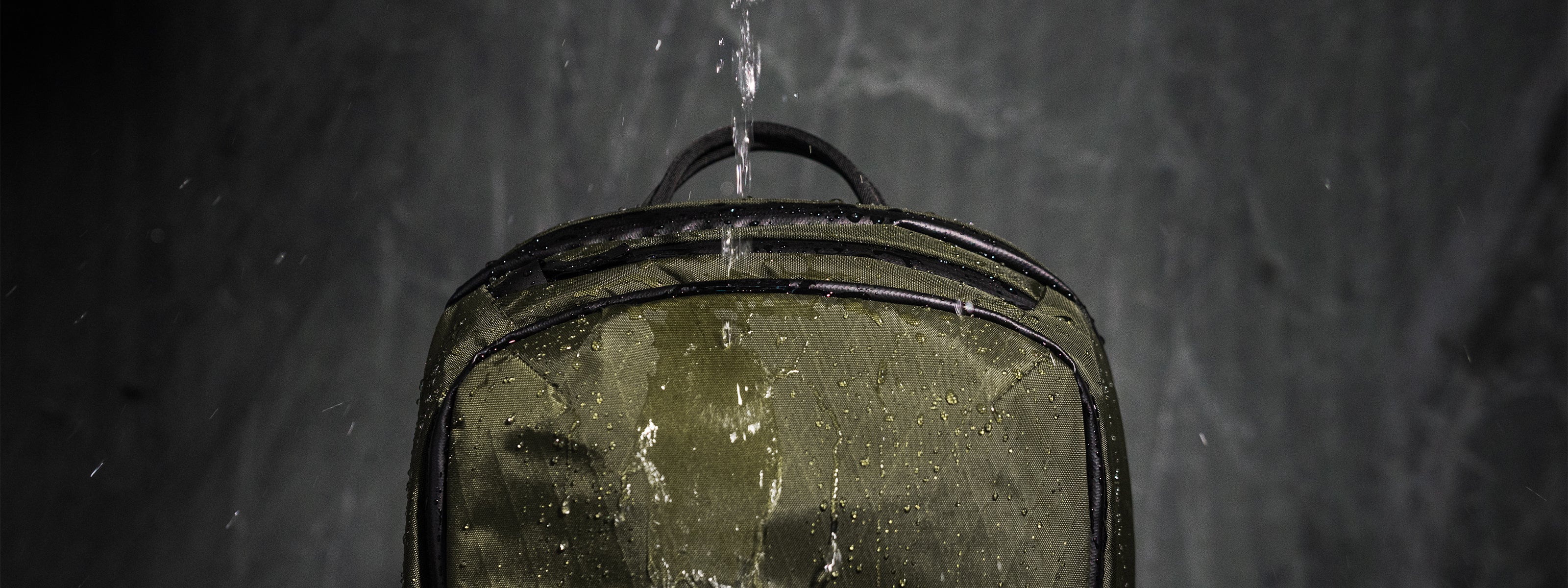
WATERPROOF VS. WATER-RESISTANT: WHAT’S THE DIFFERENCE?
Not all bags handle water equally. You've probably discovered this the hard way if you've ever opened your bag after a downpour to find a damp laptop. At ALPAKA, we're committed to keeping your gear dry, but we're also committed to straight talk. So let's dive into what "waterproof" and "water-resistant" actually mean.

WATERPROOF MATERIALS VS. WATERPROOF PRODUCTS
Here's a key distinction that often causes confusion: waterproof materials don't automatically make a waterproof product.
Take X-Pac® for example – this premium fabric features a waterproof membrane that's completely impervious to water. The material itself is genuinely waterproof.
So why don't we call our X-Pac® bags "waterproof" instead of "water-resistant"? Because even with 100% waterproof fabric, a finished bag includes seams, zippers, and access points – all features that affect technical waterproof ratings. Think of it like building a boat: using waterproof wood doesn't automatically make the entire thing submersible.

WHAT "WATERPROOF" ACTUALLY MEANS
True waterproofness is a specific technical standard. For a product to be genuinely waterproof, it must keep water out when fully submerged. This requires:
- 100% waterproof materials
- Completely sealed seams
- Specialized airtight zippers
- Minimal or heavily protected openings
Bags like this exist for activities like kayaking or diving, but they prioritize water protection over everyday convenience and typically come with hefty price tags.

THE PRACTICAL REALITY OF WATER RESISTANCE
ALPAKA bags are designed for real-world performance. We create them to keep your gear safe in everyday conditions like:
- Sudden downpours
- Splashes from puddles
- Morning dew or light snow
- That coffee spill that seems inevitable
We rate our bags between 10,000mm to 15,000mm water resistance. That’s technical-speak meaning they're engineered to keep your valuable gear dry in typical rain situations while remaining practical for daily use.
HOW WE MAKE OUR BAGS WATER-RESISTANT
Our multi-layered approach includes:

1. Surface Treatments
- PFAS-Free DWR (Durable Water Repellent) coating makes water bead up and roll off instead of soaking in—it's that satisfying effect when raindrops seem to dance across your bag.
- For non-laminated fabrics, we apply multiple layers of PU (Polyurethane) coating to the back, creating a barrier that blocks moisture penetration even when the outer fabric begins to get wet.

2. Laminated Construction
Premium materials like X-Pac® take water protection further with a PET membrane layer that's completely air and water tight, sandwiched between other performance layers.

3. Strategic Design
We carefully position zippers, minimize seams in vulnerable areas, and use protective flaps to direct water away from potential entry points.

THE REALITY OF WATER RESISTANCE
Even the best water-resistant treatments naturally change over time with regular use. DWR coatings wear with use and cleaning. PU coatings age with time.
The good news? ALPAKA products are engineered to maintain their water resistance significantly longer than average, and many DWR treatments can be refreshed with proper care products to extend their effectiveness.
THE PRACTICAL TAKEAWAY
Our products strike an ideal balance between water resistance and everyday usability. We've engineered gear that provides reliable protection against rain and everyday moisture while maintaining lightweight, practical designs for comfortable carrying.
While our bags aren't designed for underwater adventures, they're perfectly equipped to protect your gear during that unexpected downpour or urban exploration.

